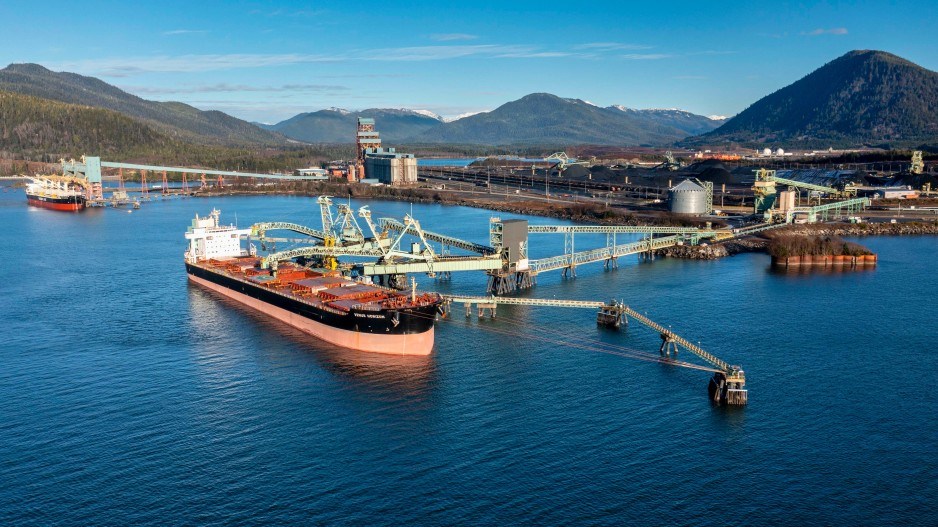When it comes to what can or can’t be shipped through the Port of Prince Rupert, the federal government’s left hand appears not to know what its right hand is doing.
On the one hand, the federal government granted Trigon Pacific Terminals $75 million last year under the National Trade Corridors Fund to build a second berth for the export of low carbon liquid fuels like ammonia, methanol and biofuels.
But the Prince Rupert Port Authority – a federal agency under the aegis of the Canadian transport minister – says Trigon doesn’t have permission to expand its permitted uses “beyond its current portfolio.”
That current portfolio includes thermal coal, the export of which the Trudeau government plans to ban by 2030 – hence Trigon’s pivot to liquid fuels. Currently, thermal coal makes up about one-quarter of Trigon's business, with metallurgical coal making up the balance.
The pivot to liquid fuels appears to have the support of the federal government, which last year granted Trigon $75 million for its $163-million B2BC project (Berth 2 Beyond Carbon).
That project is intended to export liquid fuels like ammonia, though when it was announced last year, Trigon also noted that it might also be used for other fuels, including liquefied petroleum gas (LPG).
"The berth has been designed for multiple commodities including hydrogen-as-ammonia, renewable and bio-fuels, methanol/ethanol or additional liquefied petroleum gas, and potentially hydrogen itself," Trigon said in November 2022, after the $75 million federal grant was announced.
Separate from the B2BC project is a plan announced Friday to repurpose some of Trigon’s existing coal export capacity and infrastructure for an LPG export terminal.
That plan calls for 120,000 cubic metres of liquid fuel storage capacity for fuels like butane and propane.
But AltaGas (TSX:ALA) and its Dutch partner, Royal Vopak, have exclusive rights to ship LPGs through the port, the Port Authority says.
“PRPA has provided time-limited exclusive rights for the export of liquid petroleum gas (LPG) to the Ridley Island Energy Export Facility (REEF), a joint venture between Vopak and AltaGas, that will facilitate the export of LPG, methanol, and other bulk liquids,” the port authority said in a statement to BIV News.
“The Prince Rupert Port Authority (PRPA) is the landlord of Trigon Pacific Terminals’ … leased property on Ridley Island, and has the responsibility to provide consent for specific cargoes being moved through or stored on any of its properties.
“PRPA has not given Trigon consent to expand its permitted uses on its leased property beyond its current portfolio.”
Vopak and AltaGas coincidentally announced today that site clearing will soon begin in advance of a final investment decision for the REEF project in the first half of 2024. The REEF project will be an export terminal capable of handing LPGs and other liquids fuels, like methanol.
The port authority notes that the REEF project received provincial and federal environmental permits last year.
“The REEF project has been in development for multiple years, has concluded federal and provincial regulatory review and permitting processes, and is completing the workstreams necessary to make a final investment decision in the Spring of 2024,” the port authority said.
“The provision of exclusive rights for specific cargoes enables the certainty required to advance large capital projects through long development periods, secure investment in vital trade infrastructure, and fulfill PRPA’s mandate.”



